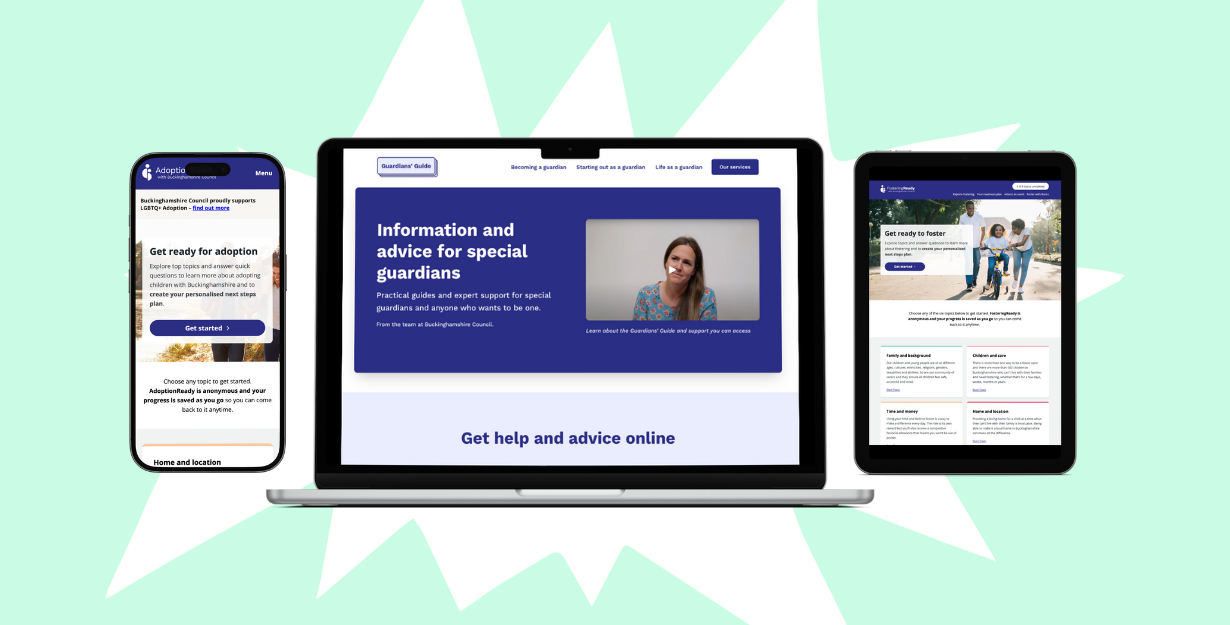A ‘connected services’ model is Rochdale Council’s new approach to housing and homelessness. It marks a significant shift in connecting the council with its many partners, growing relationships and building trust within the ecosystem, nurtured through prototyping and testing. Ultimately, working together to create better services for Rochdale service users.
The Strategic Housing team started this journey by bringing partners together from housing and homelessness to co-design a better future for staff and service users. Unsure if partners would engage at all, asking for time out of busy schedules and for trust in new ways of working, we anticipated push-back and rejection. But we experienced the opposite. Week by week we started to see a shift from the ‘I/we’ of an individual organisation to the ‘we’ of the system.
Prototyping as an agent for change
We’re working with the council and its partners, to prototype the four parts of the connected services model: multidisciplinary team working, multi agency strategy group, holistic advice, the Homelessness and Allocations Service and insights, innovation and partnership. Prototyping is a new approach for Rochdale Council, and we wanted to build confidence internally and a shared understanding of the process before testing in a live environment.
For each prototype, we assembled multidisciplinary teams with staff from the social, private and third sectors. Bringing expertise from many contexts together for weekly workshops to understand the ‘as is’ experience, we could collectively think about the future for service users in Rochdale and begin articulating the ‘to be’ future experience, testing different components with real service users.
As we go through the motions of developing and testing prototypes, the process of prototyping itself has now become a critical agent of change.
Building new networks
The system in Rochdale is reliant on collective skills to meet the needs of service users. With different organisations each solving specific problems, it can be easy to rely heavily on signposting and referrals without developing a deeper knowledge of the user experience once handed over to another organisation. If we develop stronger, ongoing working relationships between all involved organisations, we can collaboratively ensure that service users’ needs are met in a high-quality experience. Until now, there hasn’t been a forum to support these connections at this scale.
Our prototyping workshops were often the first time many staff had a conversation or met face-to-face. This was an opportunity to support conversations, exploring and clarifying assumptions of roles within the council and other organisations. Discussing live cases and challenges, we developed new connections and relationships, building a culture of shared learning around each other’s limitations and remits.
It’s these new connections and relationships that can immediately benefit the service user. Whether it’s finding someone a home or facilitating a conversation with a landlord, these conversations helped us understand that we’re exploring similar approaches and ultimately, all trying to achieve the same goals.
Exploring future state
With stronger relationships and an open forum for sharing, when it came to exploring the ‘to be’ future experience we were able to focus on service user needs and how, as a collective system, we can best meet them.
There was an assumption that during mapping, we would uncover disagreements and roadblocks about what “good” looks like and the ideal future. Instead, we easily found agreement and common ground, a fairly rare and positive experience.
Despite different agendas, through co-design, we’ve arrived at a consensus with shared outcomes. We’ve been able to strip away the labels of processes and different organisations, building a shared vision for the future housing service in Rochdale. Thinking about that experience from a service user’s perspective, these teams have been able to explore and agree on what will work in reality, and what will not.
Relationships as units for change
Through this process, we’re starting to see relationships grow stronger. Siloed teams have come together and we’ve seen a culture shift as Rochdale moves from the ‘we’ the service to ‘we’ the system.
We’ve been able to build understanding and trust between services and specifically within Rochdale’s Strategic Housing team. This new awareness and relationships create opportunities beyond housing for increased collaboration to solve future problems.
Looking forward we’re focused on building sustainability in this work. This mindset has built a strong foundation for many services in a system to move from co-design to implementation and large scale change. There’s collective anticipation for this change and a desire to see it happen.

Digital tools empowering residents to care for at-risk children
Creating a groundbreaking suite of new digital tools to support caregivers of at-risk children, provide guidance and drive applications.
Read moreOur recent insights

Bringing community power to life
Our Community & Political Engagement Director, Claire Hazelgrove, shares her experiences from Stronger Things
Read more
Greater expectations? Meeting digital needs post Covid-19
The pandemic raised the bar for digital transformation in the public sector. But what's next for digital teams in local authorities?
Read more
Beyond the smart city - how can London's data help citizens?
London's Chief Digital Officer, Theo Blackwell, on how data and technology can improve the lives of urban residents.
Read more

